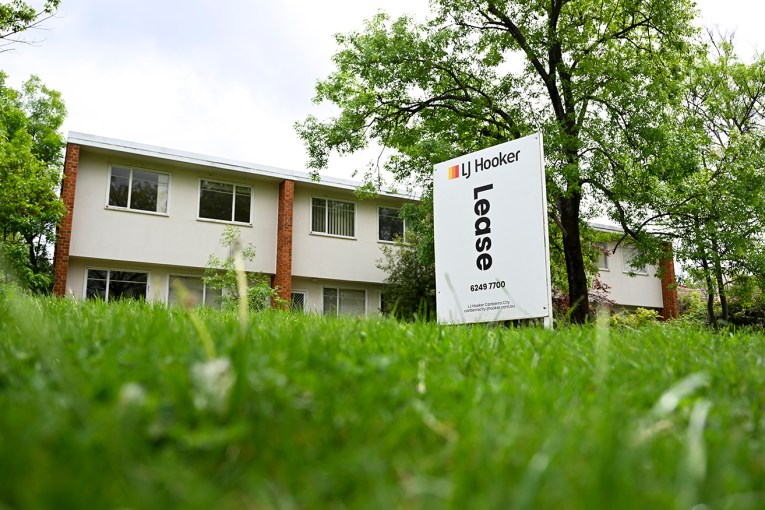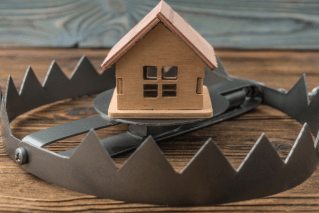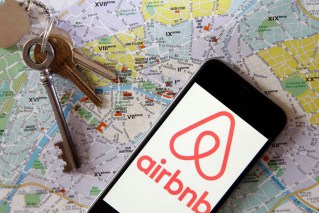How much does it cost to move out of home?

There’s a reason lots of Gen Ys have been sticking around with the ‘rents until well into their 20s – running your own household can be pricey, complicated and overwhelming.
Economists and social demographers even a name for these kids that won’t leave: KIPPERS – Kids In Parents’ Pocket, Eroding Retirement Savings.
About a quarter of people aged 20 to 34 are still living with their parents, and others that are out now could make a return.
So to avoid being a long-term drain on their parent’s income, and to take the stress out of relocating, it pays to plan ahead and do research to avoid any nasty surprises like unforeseen costs, rent disagreements or disasters like fires or floods.
Here are the major costs needed to budget for a life out of home, and how to save.

Apply for homes with professionalism
Unless you’re buying a home (in which case see our article for first home buyers), moving out will most likely mean renting.
If you’re a group of young people looking for a place, unfortunately you’re likely to be one of the least desirable tenants. It can be the same if you have small children or pets.
If you have connections in the real estate industry, use them. Sell yourself as a reliable, trustworthy individual by using professional references and showing a stable and secure income. Additionally, be polite, well-presented, enthusiastic and honest.
Ongoing costs
Rent and bond
Rent:  Set a clear budget of what you can afford to pay each week for rent and find a property that falls under this. Location and quality of property will effect prices.
Set a clear budget of what you can afford to pay each week for rent and find a property that falls under this. Location and quality of property will effect prices.
When sharing a house, housemates should pay an amount that reflects the space they’re using. If you have the sole use of an en suite bathroom or a car space you should be paying more.
Sites like Splitwise can help you break up your monthly rent based on the number and size of the bedrooms, no arguments required.
Bond: You will have to pay a security bond up front when you start a lease, usually the equivalent of four to six weeks rent. You will get back the bond back once your rental period ends – if everything is in order.
How to save: Choose less popular suburbs, live with more than one other person and share with people who are reliable and employed.
Insurance
Costs: It’s better to be safe than sorry. Having renter’s home and contents insurance will let you sleep easy at night. Your insurance fee will depend on the amount of cover you require, the construction of your home, whether or not you have a pool, the value of your personal belongings, your age and your location.
How to save: Use comparison sites to find the best deals.
Utilities
Costs: These are the basic living requirements you will have to pay for each month, including gas, electricity, phone, internet, television and water.
How to save: Consider foregoing a landline for a mobile phone, substitute a Foxtel subscription for a really great internet connection, turn lights off, wear an extra jumper instead of using the heater and be conscious of your water use.
 Groceries
Groceries
Cost: Don’t kid yourself; surviving on two-minute noodles and toast is not a healthy nor sustainable option. Aside from investing the extra time to cook, feeding yourself also requires a significant financial investment if you want to do it properly.
Weekly groceries (including things like toilet paper, cleaning supplies, fruit, vegetables and packaged foods) can cost around $150 per person.
Save: Buy in bulk from stores like Aldi or Costco, take it in turns to pay for and cook dinner, stick to a strict shopping list and avoid buying anything more than the bare essentials (read: no junk food).

Transport
Cost: When choosing your location, make an informed decision based on your desire to close to what matters: Work, university, family or friends. If you’re choosing a suburb that’s further out, pick a place close to a train station or tram stop. If you don’t have a car, you may either have to buy one or reconsider your location choice. While living far away may mean lower rent, it can increase your transport and petrol costs.
Save: Walk or bike ride when possible, save discount petrol receipts, if you’re studying get a concession card for public transport and consider selling your car if you live near the city.
Upfront costs

Removalist fees
Costs: You have two options. You can either hire a company to do all the hard work for you or you can rent a van and load it up yourself.
Hiring a company saves time, but can be expensive – possibly thousands for a day’s work.
Services like Melbourne’s Little Red Trucks charge by the hour (approximately $125 per hour on weekdays) and provide you with a truck and two men to help you get from A to B.
Renting a van or trailer for the day and loading it up yourself may save on labour costs, but be prepared to pay a bond and consider that some companies will add a surcharge of around $30 if you’re under 25.
How to save: Get friends and family to help you move and offer to buy them dinner as repayment, move on a weekday to avoid traffic and weekend surcharges and plan ahead to minimise labour time.
 Furniture
Furniture
Cost: Moving out means big ticket furniture; you will need a couch, a bed, a dining room table, chairs and possibly a wardrobe.
Set aside at least $5000 if you’re buying all your own furniture, or agree with a housemate as to who will provide what. Remember that if you are willing to go second hand, you can score a bargain on websites like Gumtree.
Another option is renting, which is ideal for shorter periods. Rental sites like Mr Rental charge around $10 a week per furniture item.
Save: Take as much as you can from home, put a call out on Facebook or Twitter for anyone looking to get rid of old furniture, shop at secondhand stores, Ikea or Gumtree and divide up items amongst your housemates so you don’t have to buy it all at once.

White goods
Cost: You’re going to need a fridge. Having a washing machine can come in handy but it’s not a requirement as you can also use a coin laundry (just make sure there’s one nearby).
Other items to include are a toaster, a sandwich toaster, a microwave and a full range of pots, pans, cutlery and Tupperware. Allow at least $200 for bigger items and $50 for each of the smaller items to be safe.
How to save: Rent bigger items, wash your dishes by hand, shop at discount stores or bring items from mum and dad’s.








